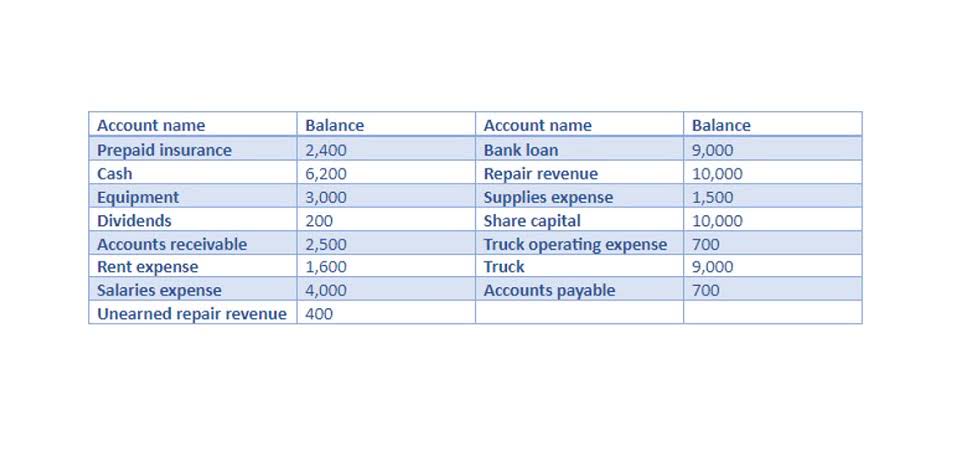Tin Tức
Legal Accounting and Finance Jobs in New York City Law Firms

Bookkeeping tasks are ongoing and can be performed daily, weekly, or monthly. Whether you do the task yourself or outsource it to a pro, the goal is to make sure your books are accurate, up-to-date, and useful to you and your CPA. Ask a CPA to help you determine which accounting method is best for your business, and stick with it. If you’ve ever balanced your checkbook, or simply compared the balances in your bank account and your company books to make sure they match, you’ve already performed a two-way reconciliation.
- Furthermore, effective bookkeeping helps in managing cash flow, a critical factor for any business’s sustainability.
- We’re on call to keep your firm’s financial conversation going strong.
- We also offer bookkeeping services to our clients; we have professional staff trained in some of the most popular legal bookkeeping software such as PCLaw, CosmoLex, Clio, Soluno and GhostPractice.
- By prioritizing meticulous financial record-keeping, law firms can ensure their long-term success while upholding the ethical standards expected in the legal profession.
- You’ll be required to maintain a higher minimum amount in the account, and have limited check-writing options.
- This way, your firm can stay compliant with ethics rules—and you can ensure you aren’t leaving money on the table.
Get clear on trust account rules
The goal of bookkeeping is to have an accurate picture of your current financial standing. For example, you might think you have plenty of money in the bank and buy a new bookkeeper for law firm computer before realizing you forgot to record that check to the court reporter. Or, you might lose track of critical transactions that affect your taxes.

Next Up: A Certified Public Accountant
- Or maybe you’re just starting your firm and want to begin on the right foot.
- Cloud services like FreshBooks let you set up recurring invoices and record project expenses while also letting your clients pay outstanding invoices online using their credit card.
- By tracking their finances accurately, law firms are able to make more strategic decisions that lead to long-term success.
- Start by learning about the typical accounts in a law firm’s chart of accounts.
- Quickly and easily capture time, create invoices and streamline accounts receivable.
- With those distinctions in mind, it becomes easier to see which type of professional help you might need.
At The Bookkeeper, we have been providing bookkeeping for law firms for decades. We offer a comprehensive range of specialized bookkeeping services tailored specifically for law firms. One critical aspect we focus on is trust accounting, meticulously tracking client funds held in trust and maintaining accurate records Bookkeeping for Consultants of all transactions. We also handle client cost tracking, ensuring that all billable expenses are accounted for and properly allocated to the respective matters. Additionally, we understand the nuances of complex billing structures in the legal industry, including contingency fees, hourly rates, and flat fees.
- Hours are calculated, taxes are paid and deductions are removed securely.
- Law firms need to ensure that their financial and accounting practices are up to par in order to grow their businesses.
- This is just one of the many compliance regulations that law firms must adhere to.
- In contrast, legal bookkeepers focus on the day-to-day management of financial records.
- This is essentially FICA and Medicare, only your payment covers both a withholding from your wage and the matching contribution from your company.
- Users can also trial Xero for free before committing to use it full-time.
- × Financials with little to no insight on your law firm’s cash flow or profitability.
What are the key steps of bookkeeping for a law firm?

Finally, we’ll go over some common financial mistakes and how to avoid them. For example, if you have a client who owes you $1,000 for legal services rendered, but you don’t send them an invoice until 60 days after the work was completed, you’ve essentially given up $1,000 in revenue. For example, if a law firm has multiple partners, each with their own areas of focus and billable hours, the bookkeeper will need to be able to track this information correctly. For example, if a lawyer has $10,000 in their business account and $5,000 in their trust account, they would need to deposit the $5,000 into a separate trust account. The lawyer would then need to surrender any interest earned on the $5,000 to the client.

Your business’s accounting method will affect cash cash flow flow, tax filing, and even how you do your bookkeeping. Cash accounting recognizes revenues when cash is received, and expenses when they are paid. This method does not recognize accounts receivable or accounts payable. Every state has an IOLTA program, and it’s likely that the bank where you opened your regular business checking account also offers IOLTA accounts. But rules do vary by state, so consult your State Bar Association and a professional accountant before finalizing your accounting setup. Manage business revenue in your checking account, and set aside money you’ll need at a later date (for emergencies, to pay taxes, etc.) in a savings account.

